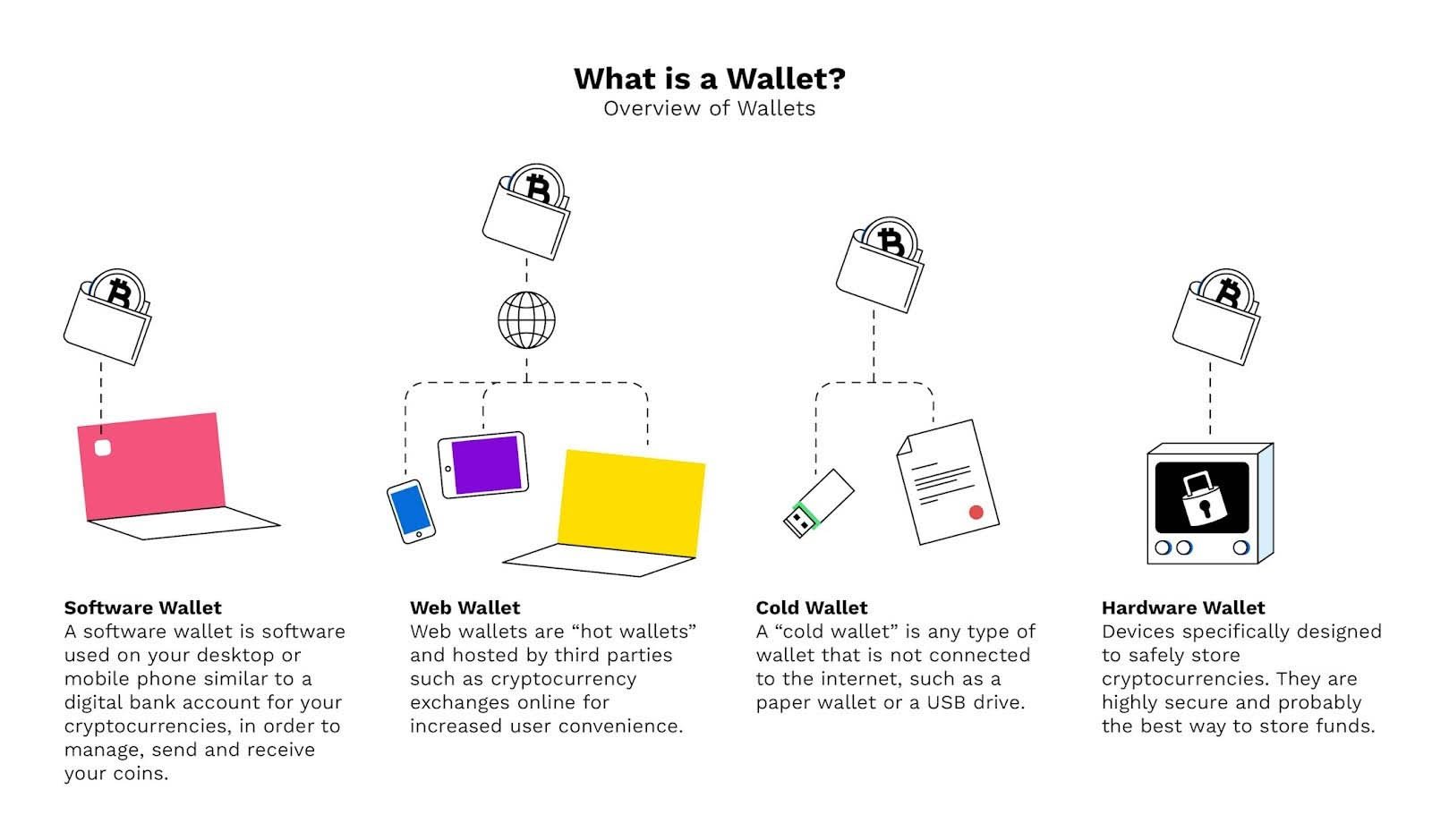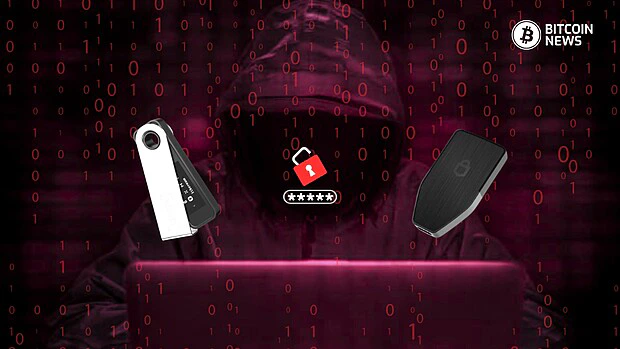A Bitcoin hardware wallet is considered one of the safest ways to keep private keys offline, but they aren’t immune to attacks. This article reviews notable hacks targeting Bitcoin hardware wallets and explains why Bitcoin-only wallets offer stronger security.
What is a Bitcoin Hardware Wallet?
A hardware wallet is a physical device that stores the private keys required to send bitcoin. Unlike software wallets, which can be vulnerable to malware on connected devices, hardware wallets keep keys offline, reducing exposure to cyber threats.
Leading wallets like Trezor and Ledger are popular for their reliability, but even they can face security challenges.

Notable Hardware Wallet Hacks
1. Ledger Data Breach (2020)
Ledger experienced a massive data breach in 2020, leaking the personal information of over 270,000 customers. Hackers didn’t gain access to bitcoin, but used the stolen data in phishing attacks, trying to trick users into revealing their recovery phrases.
Lesson: Never share your recovery phrase and be cautious of phishing attempts following data breaches.
2. Trezor Supply Chain Attack (2018)
Trezor wallets were targeted by a supply chain attack in 2018, where tampered devices were sent to users. The attackers modified the wallets before delivery to steal private keys.
Lesson: Always purchase hardware wallets from trusted sources and check for signs of tampering.
3. Ledger Side-Channel Attack (2020)
Researchers demonstrated a “side-channel” attack on the Ledger Nano S, allowing them to extract private keys by measuring power consumption during cryptographic operations. This attack required physical access to the device.
Lesson: Always keep your hardware wallet in a secure location and never leave it unattended in the open.
4. KeepKey Firmware Vulnerability (2019)
In 2017, a vulnerability in KeepKey wallets allowed hackers to load malicious firmware and steal private keys. KeepKey quickly released a security update, but this highlighted the need for regular firmware updates.
Lesson: Regularly update your wallet’s firmware to stay protected from known vulnerabilities.
Why Bitcoin-Only Wallets Are More Secure
Bitcoin-only wallets, such as Coldcard, Blockstream Jade, and Foundation Passport, offer fewer attack surfaces than multi-currency wallets. Here’s why:
- Simpler Codebase: Bitcoin-only wallets are designed to support just one blockchain, reducing the risk of bugs or vulnerabilities introduced by supporting multiple digital assets.
- Fewer APIs: Multi-currency wallets require integrating different APIs for each blockchain they support, increasing the attack surface. Bitcoin-only wallets avoid this added complexity.
- Focused Security: Bitcoin-only wallets focus entirely on securing Bitcoin transactions and keys, allowing developers to address security issues more quickly.
- Reduced Complexity: Supporting multiple altcoins means handling different cryptographic algorithms and signatures, increasing the chances of failure. Bitcoin-only wallets have streamlined processes for just one system, reducing risks.
Recommended Bitcoin-Only Hardware Wallets
1. Coldcard
Coldcard is renowned for its air-gapped security, ensuring private keys never touch the internet. It supports multisig wallets and offers an encrypted backup PIN feature for added protection.
2. Blockstream Jade
Blockstream Jade supports Bitcoin private key storage, and transactions and can be used in an air-gapped mode for heightened security. It integrates with the Blockstream Green wallet, making it a great option for newcomers.
3. Foundation Passport
The Foundation Passport is a fully air-gapped Bitcoin-only wallet with a sleek design. It supports multisig wallets and uses QR codes for transactions, ensuring no physical connection to a computer is required.
4. SeedSigner
SeedSigner is a DIY, open-source Bitcoin wallet that doesn’t store data permanently, adding a layer of security. It’s ideal for advanced users who want more control over their wallet’s security.
5. Block’s Bitkey
Bitkey is a hardware wallet designed to secure bitcoin’s private key storage with easy integration into CashApp. It offers multi-signature (multisig) support and high-grade security features to protect private keys.
This combination of multisig and CashApp integration is helpful for beginners looking for a simple and secure way to manage their bitcoin.
Best Practices for Securing Your Bitcoin Wallet
To maximize your hardware wallet’s security:
- Buy from Trusted Sources: Purchase directly from manufacturers or authorized resellers to avoid tampered devices. It’s a best practice to avoid buying second-hand devices.
- Check for Tampering: Inspect the device and packaging for any signs of tampering before use.
- Update Firmware: Keep your wallet’s firmware up to date to ensure it’s protected from known vulnerabilities.
- Protect Your Recovery Phrase: Store your recovery phrase securely offline and never share it with anyone.
- Beware of Phishing Scams: Be cautious of phishing emails or fake websites that attempt to steal your recovery phrase or personal information.
- Don’t Connect to Untrusted Devices: Only use trusted computers and networks when interacting with your hardware wallet.
Conclusion
While Bitcoin hardware wallets provide strong security, they’re not immune to attacks. Bitcoin-only wallets like Coldcard, Blockstream Jade, and Foundation Passport offer enhanced protection by focusing on a single asset and limiting attack surfaces.
By following best practices and staying informed about potential vulnerabilities, users can significantly reduce the risk of hacks and securely store their bitcoin for the long term.










